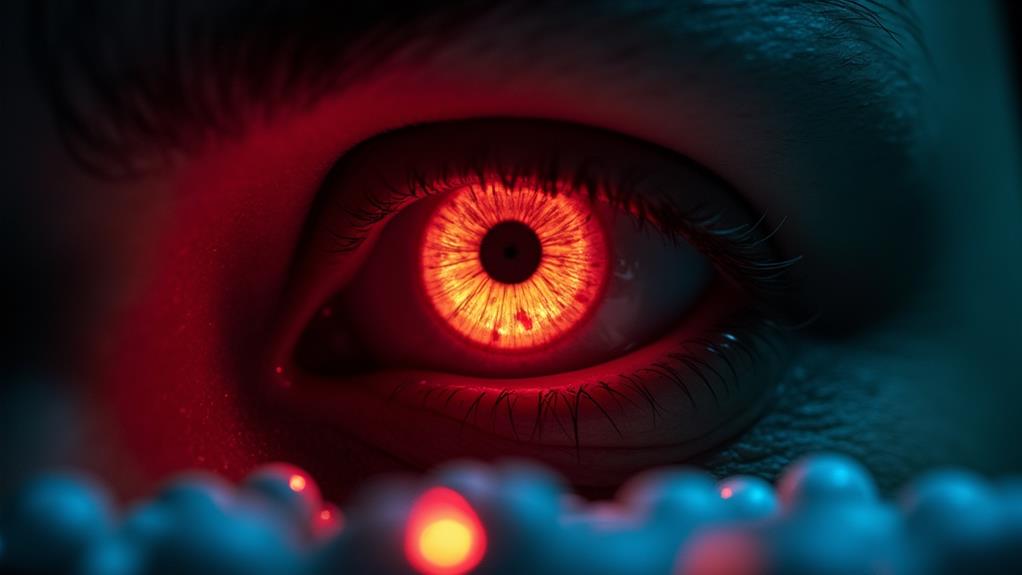Going Blind From Poppers? the Terrifying Eye Condition Sweeping the Club Scene
Poppers, recreational inhalant drugs containing alkyl nitrites, have been linked to a surge in vision problems among users in club scenes. Recent reports highlight an alarming increase in eye-related issues, including retinal damage and potential blindness. The primary culprit appears to be isopropyl nitrite, causing symptoms like eye floaters, blurred vision, and light sensitivity. Medical studies have consistently shown a connection between poppers use and ocular complications, with some cases resulting in permanent vision impairment. Although complete abstinence is the safest approach, harm reduction strategies and community education are essential for those who choose to use. Understanding the risks and recognizing early symptoms can be vital for preserving one's eyesight.
What Are Poppers?

Poppers, a colloquial term for alkyl nitrites, are a class of inhalant drugs primarily used for recreational purposes.
These volatile liquids are typically inhaled through the nose, producing rapid-onset effects that include a euphoric rush, relaxation of smooth muscles, and heightened sensory experiences.
The poppers history dates back to the 19th century when amyl nitrite was first synthesized for medical use, particularly in treating angina pectoris.
In the 1960s and 1970s, poppers gained popularity in the gay club scene and have since become prevalent in various nightlife settings.
The poppers effects are short-lived, usually lasting only a few minutes, but can include dizziness, flushing, and increased heart rate.
In spite of their widespread use, concerns about potential health risks, including vision problems, have emerged in recent years, prompting renewed scrutiny of these substances.
According to a 2012 Global Drug Survey, 2.2% of poppers users reported eyesight issues, highlighting the need for awareness about the dangers associated with these inhalants.
The Emerging Eye Danger
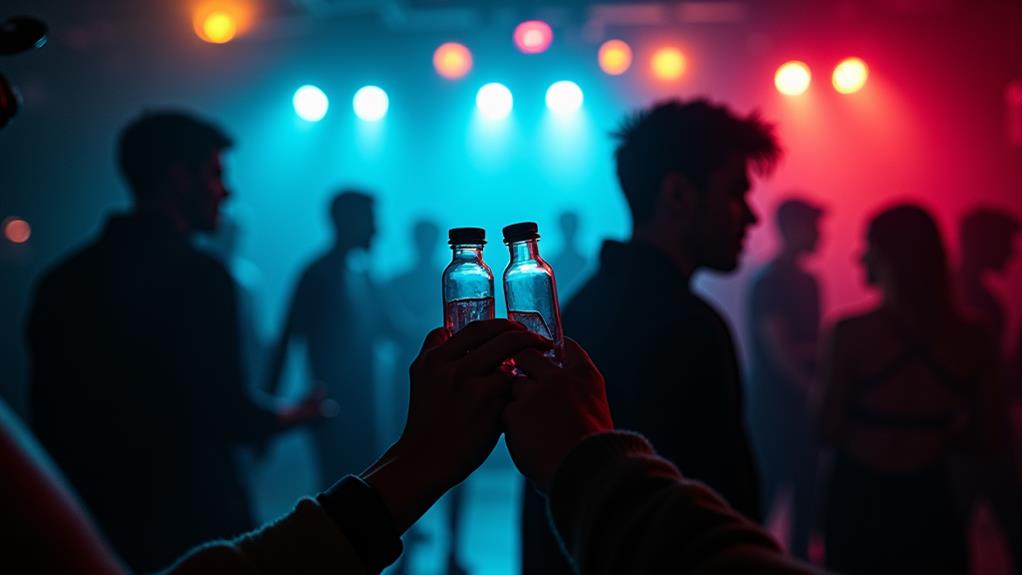
Recent medical reports have shed light on a concerning trend: vision problems associated with poppers use. Ophthalmologists have observed an increase in cases of retinal damage and vision loss among individuals who regularly inhale these substances.
The primary culprit appears to be isopropyl nitrite, a chemical commonly found in modern poppers formulations. Users have additionally reported symptoms such as eye floaters and muscle twitching linked to popper use.
This emerging eye danger has raised significant alarm within the medical community and among poppers users. Symptoms can include blurred vision, light sensitivity, and in severe cases, permanent vision impairment.
The exact mechanism of damage is still under investigation, but researchers believe the chemical may directly affect the retina's photoreceptor cells.
As awareness grows, discussions around poppers safety and eye health have become increasingly important within social circles where use is common. Users are encouraged to prioritize their ocular well-being and seek immediate medical attention if vision changes occur.
Medical Evidence and Research
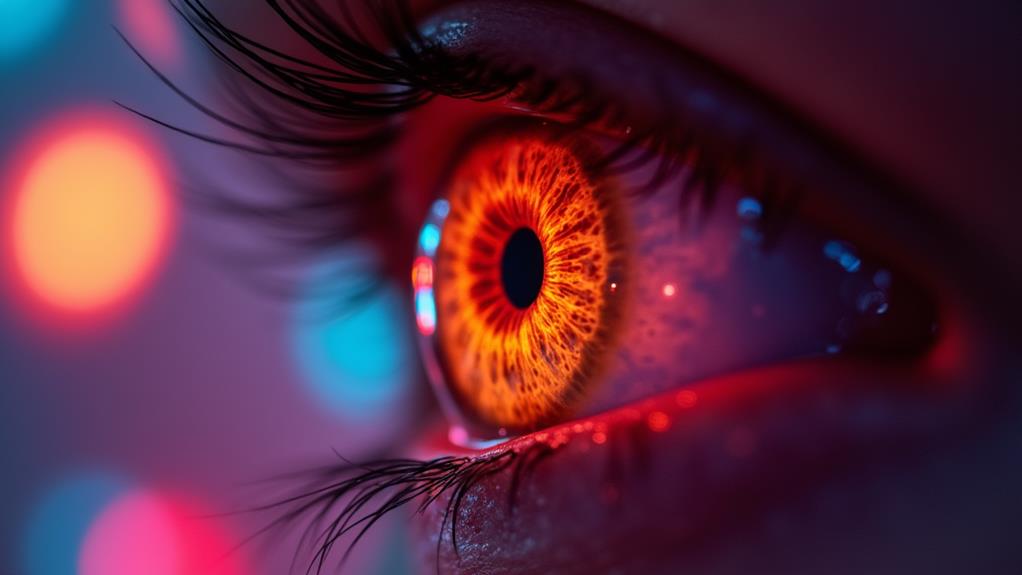
Several scientific studies have emerged in recent years, providing substantial evidence of the link between poppers use and ocular complications.
Research has focused on the poppers composition, particularly the presence of alkyl nitrites, which are believed to be the primary cause of visual impairment in users. A 2014 study published in the British Journal of Ophthalmology reported cases of retinal damage following poppers inhalation.
During a 2016 review in the Journal of Neuro-Ophthalmology, a consistent pattern of maculopathy among users was identified. Further research has highlighted methemoglobinemia, a condition associated with low oxygen levels and altered consciousness, as a significant risk factor.
These findings have been corroborated by multiple case reports and cohort studies, highlighting the potential risks associated with recreational poppers use. The medical community has observed a range of symptoms, from temporary blurred vision to permanent central vision loss.
As awareness grows within the club scene, researchers continue to investigate the mechanisms behind these ocular effects and potential preventive measures.
User Experiences and Testimonials
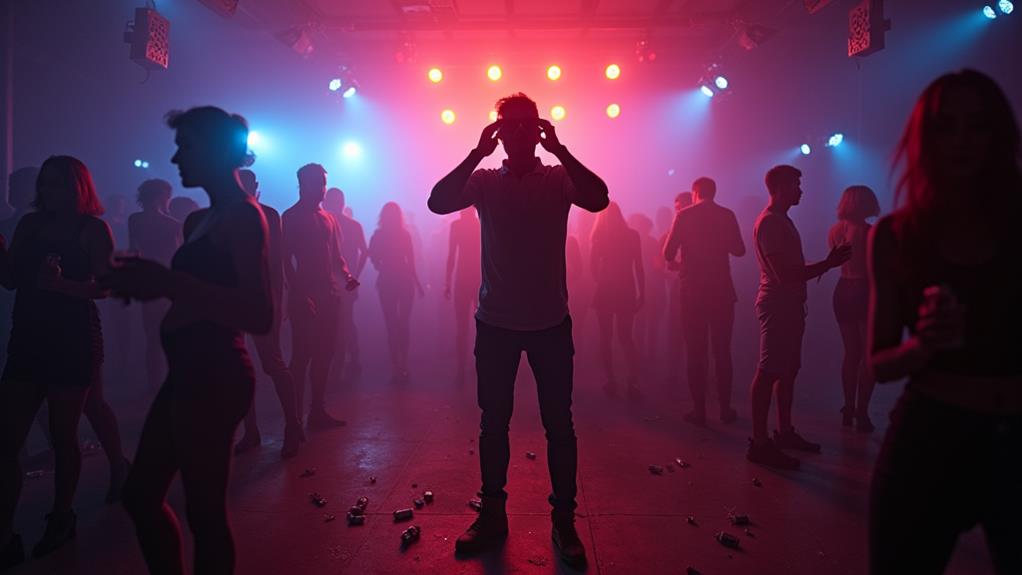
User experiences and testimonials provide valuable insights into the real-world consequences of poppers use. Many individuals have shared their experiences through online forums, support groups, and medical case studies, offering a glimpse into the potential dangers associated with poppers.
These personal stories often detail the onset of visual disturbances, including blurred vision, color perception changes, and in some cases, partial or complete vision loss. Some users have likewise reported severe respiratory issues, with symptoms ranging from shortness of breath to chest pain, as highlighted in health risks associated with poppers.
User testimonials frequently describe the initial shock and disbelief upon experiencing eye-related symptoms, followed by anxiety and regret. Some users report temporary effects that subside after discontinuing poppers use, whereas others recount long-lasting or permanent vision impairment.
These firsthand accounts serve as cautionary tales for current and potential users, highlighting the risks involved in recreational poppers consumption and emphasizing the importance of informed decision-making within the community.
Harm Reduction Strategies
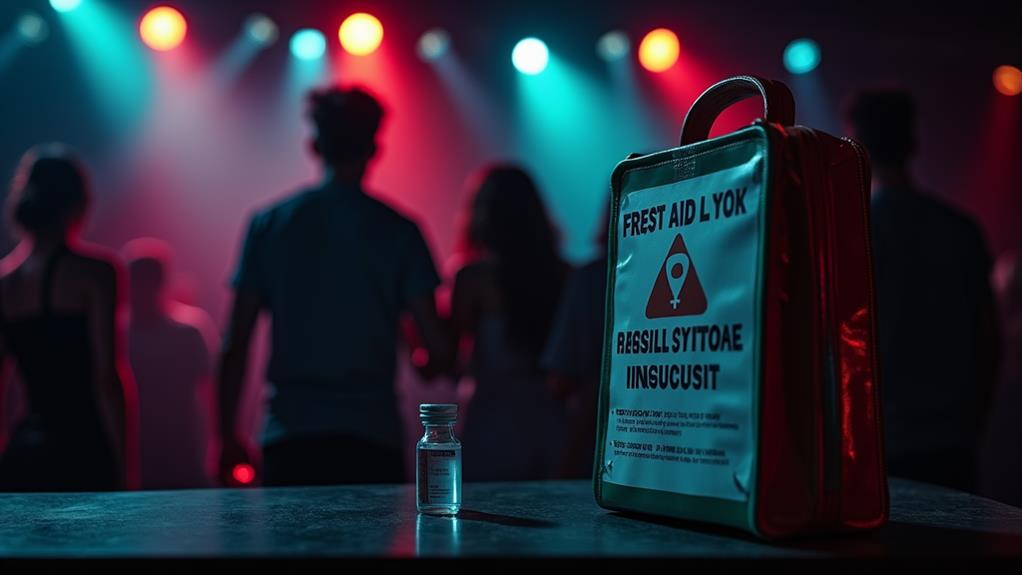
Whereas complete abstinence from poppers use is the most effective way to prevent associated health risks, harm reduction strategies can help minimize potential damage for those who choose to continue using these substances. Serious health risks, including neurological damage, make it essential to adopt safer consumption practices. These include using only from reputable sources, avoiding mixing poppers with other drugs or alcohol, and limiting frequency and duration of use.
Community education plays a vital role in spreading awareness about potential risks and proper usage techniques.
Users should be advised to never ingest poppers orally and to avoid skin contact. Proper ventilation during use and storing poppers in a cool, dark place can reduce exposure to harmful vapors.
Regular eye check-ups are recommended for frequent users to monitor ocular health. Establishing support networks within the community can encourage open dialogue about experiences and potential warning signs, nurturing a culture of responsible use and mutual care.
Call Us To Assist You
The rising incidence of "poppers maculopathy" emphasizes the urgent need for increased awareness and harm reduction strategies among recreational drug users. A study published in the British Journal of Ophthalmology found that 10% of patients presenting with unexplained visual loss had a history of popper use. This statistic highlights the potential scale of the issue. Further research, public health initiatives, and targeted education campaigns are crucial to mitigate the risks associated with alkyl nitrite inhalants and preserve ocular health in vulnerable populations.
